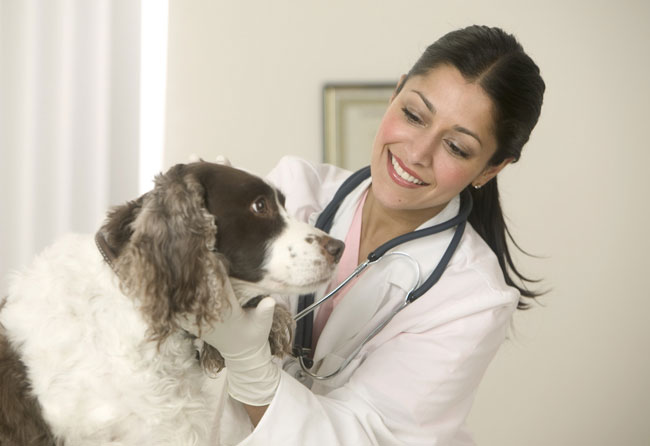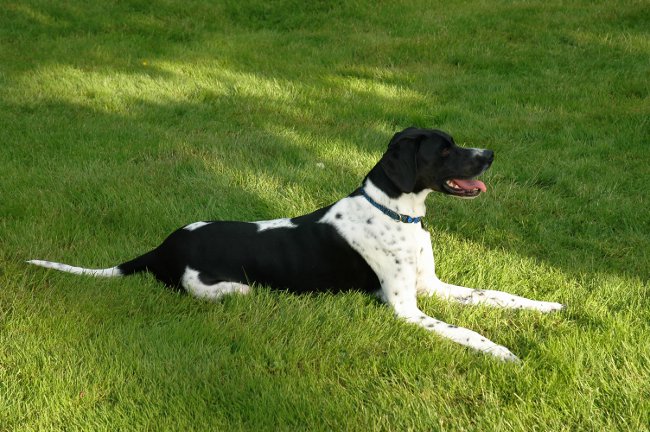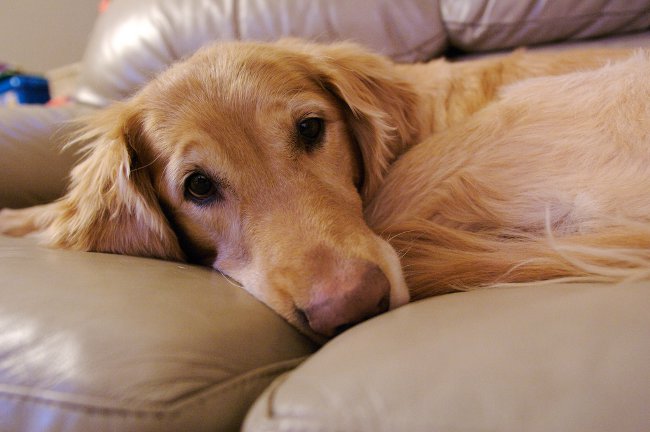Vaccination of dogs

Vaccination of dogs Is the concern not only of the owners of thoroughbredsexpensive dogs, but also all other dog breeders. An ungrafted dog can become ill itself or become an infection carrier, which can be very dangerous for others.
Why do we need vaccination of dogs? Dogs, as well as humans, are prone to infectiousdiseases. The most common "canine" diseases are carnivore plague, hepatitis, parvovirus, leptospirosis, rabies. These same diseases are the most dangerous. To prevent the development of such diseases in a dog, vaccination is necessary.
Vaccination of dogs is carried out with vaccines, mono- or polyvalent. Monovalent vaccines are aimed at the prevention of a single disease. In its turn, multivalent vaccines are designed to vaccinate dogs from several diseases at once.
Vaccination of dogs is carried out either by veterinarians or by their own efforts. Experienced dog breeders increasingly prefer to vaccinate their pets themselves, but beginners should better entrust this work to a qualified veterinarian.
The first vaccination of dogs should be performed at the age of 8-9 weeks. As a rule, vaccines are used for thisNobivacDHPPi and Nobivac Lepto. Then, after 3-4 weeks, a second vaccination with the same vaccines plus rabies vaccine (Nobivac Rabies vaccine) is carried out. Again, inoculation against rabies is carried out when the dog is one year old. Further vaccination of dogs against rabies is carried out at least once every three years.
At all, the schedule of vaccination of dogs is very individual and correctly it can be made only by the veterinarian. The need for certain vaccinationsis due to the age of the dog, the region of its residence. Contrary to popular belief, the dog breed does not significantly affect the sensitivity to a particular disease. Therefore, an unvaccinated dog of any breed always has a risk of contracting.
Among all vaccinations, only Inoculation against rabies is mandatory: for the dog's lack of vaccination against rabies or for untimely vaccination against this disease, the dog owner can be punished.
The rest of the vaccinations are made by each owner voluntarily. Therefore, often dog owners ask themselves one question: "What vaccinations are needed exactly by my dog?" And their anxiety can be understood.
The fact is that from improper vaccination, the dog can suffer very much. Low-quality vaccine, non-compliance with sanitary conditions during vaccination, non-observance of the rules of procedure - all this can lead to serious diseases in the animal or even to its death.
Vaccination of dogs should be carried out only by quality vaccines, which have not expired, which were stored and transported properly. Unfortunately, it is very, very difficult to find such vaccines.
It is very important to familiarize yourself with the list of possible side effects before applying this or that vaccine. Dangers do not present such symptoms aslethargy of the dog, a decrease in appetite, a slight increase in temperature. Within 1-2 days this reaction passes. If the dog after the vaccination has some other side effects, it is advisable to contact the veterinarian who vaccinated as soon as possible.
Before vaccination, the dog must be de-wormed. Helminths (worms) are able to weaken the immune system of the animal, releasing into the blood toxins. The deworming procedure should be performed 10 days before vaccination.
Vaccination of dogs can be carried out only if the animal is absolutely healthy. If the dog is sick, then its immunity is weakened, which means that it can not cope with the weakened strain of the virus (which is the vaccine).
After vaccination, the immunity against the disease in the dog will be developed no earlier than in 10-14 days. Therefore, during this period, you need to pay special attention tofollow the health of the dog. The dog should not supercool, walk in the street and contact other animals. Also, the dog is not recommended to wash during this period.
After the vaccination, the dog must be inspected. The veterinarian must determine whether there are any allergic reactions, give a conclusion, whether the vaccine was effective.














